Introducing our newest produce farmers, plus some thoughts on vulnerability, community, and resilience.
Not too many people will look you in the eye and tell you that farming is easy.
Farming is, in fact, incredibly hard work from start to finish. And by “start” we’re not just talking about the crack of dawn although there’s that, too; it’s awfully difficult to farm without land, and gaining access to land is one of the very toughest barriers to entry you’ll ever come across. Between the difficulty in getting started and the hard work and uncertainty once you’re there, a lot of people can give you a lot of good reasons to try something – anything – else before you try to start a farm
And yet, for some people, farming is as necessary to life as breathing.
People like Sam Hsieh, who says, “I couldn’t go back to a life without farming.”
Sam (he/him, they/them) and Katie Schofield (she/her) are the hands and hearts behind Jumping Spider Farm and the newest produce vendors on the block – the 300 block of E Main Street, that is, where we are thrilled to welcome them to the Mount Horeb Farmers Market family for their very first season!
Farming is, in fact, incredibly hard work from start to finish. And by “start” we’re not just talking about the crack of dawn although there’s that, too; it’s awfully difficult to farm without land, and gaining access to land is one of the very toughest barriers to entry you’ll ever come across. Between the difficulty in getting started and the hard work and uncertainty once you’re there, a lot of people can give you a lot of good reasons to try something – anything – else before you try to start a farm
And yet, for some people, farming is as necessary to life as breathing.
People like Sam Hsieh, who says, “I couldn’t go back to a life without farming.”
Sam (he/him, they/them) and Katie Schofield (she/her) are the hands and hearts behind Jumping Spider Farm and the newest produce vendors on the block – the 300 block of E Main Street, that is, where we are thrilled to welcome them to the Mount Horeb Farmers Market family for their very first season!
Meet Jumping Spider Farm: “This farm is a project born out of a desire to support our communities; to join, build and strengthen local food systems and climate resilience; and connect people to their food, the land and each other. We are intentionally affirming of queer and trans folks, and are trans/queer led. We grow over 40 kinds of organic vegetables (and over 100 varieties!) including some specific varieties – like bittermelon, winter melon* and choi sum – as a way for Sam to connect with his Taiwanese culinary heritage.
“We center play and experiment with different ways of growing food, like growing cucumbers alongside sunflowers as a way to trellis the cucumbers (give them some beautiful sunflowers to climb!). We have been growing food since 2021 at the Farley Center in Verona, WI, on Ho-Chunk land.”
*Winter melon isn't in season yet, but once it is, here's a recipe for winter melon soup that Sam has tried which looks amazing - and we recommend using pork from Dorothy's Range for the meatballs!
Meet Farmer Sam: “I'm a new farmer, but I've been interested in growing things and being outside since childhood – I grew up in Honolulu, HI before moving to La Crosse, WI, so I spent a lot of my childhood outside at the Pacific Ocean exploring tide pools, hiking around, and later on the Mississippi River. I lived in Chicago for most of my twenties – spending my time supporting different movement work and community building, and working various non-profit and education jobs. When I saw my friends starting their own urban farming projects, I finally started to see farming as a real possibility for myself.”
Meet Farmer Katie: “I have worked for a few different farms in the area over the past 10 years. First Orange Cat Community Farm in Reedsburg (where I met Sam), Squashington last year and now Jumping Spider Farm! It's become a practice for me each season to draw the strange and beautiful vegetables that I find on the farm. My coworkers will often set aside the weird carrots or radishes for me to draw. This year I decided to create an art add on for the CSA, which all three of the farms where I've worked are offering to their members. I'm excited about the possibility of sharing my love of vegetables in this new way with the community of people who support us in growing food.”
Katie also loves fermenting as a way to preserve the things they grow, and recommends Kristin Shockey's book Fermented Vegetables - here's one of her favorite recipes for fermented garlic paste.
“We center play and experiment with different ways of growing food, like growing cucumbers alongside sunflowers as a way to trellis the cucumbers (give them some beautiful sunflowers to climb!). We have been growing food since 2021 at the Farley Center in Verona, WI, on Ho-Chunk land.”
*Winter melon isn't in season yet, but once it is, here's a recipe for winter melon soup that Sam has tried which looks amazing - and we recommend using pork from Dorothy's Range for the meatballs!
Meet Farmer Sam: “I'm a new farmer, but I've been interested in growing things and being outside since childhood – I grew up in Honolulu, HI before moving to La Crosse, WI, so I spent a lot of my childhood outside at the Pacific Ocean exploring tide pools, hiking around, and later on the Mississippi River. I lived in Chicago for most of my twenties – spending my time supporting different movement work and community building, and working various non-profit and education jobs. When I saw my friends starting their own urban farming projects, I finally started to see farming as a real possibility for myself.”
Meet Farmer Katie: “I have worked for a few different farms in the area over the past 10 years. First Orange Cat Community Farm in Reedsburg (where I met Sam), Squashington last year and now Jumping Spider Farm! It's become a practice for me each season to draw the strange and beautiful vegetables that I find on the farm. My coworkers will often set aside the weird carrots or radishes for me to draw. This year I decided to create an art add on for the CSA, which all three of the farms where I've worked are offering to their members. I'm excited about the possibility of sharing my love of vegetables in this new way with the community of people who support us in growing food.”
Katie also loves fermenting as a way to preserve the things they grow, and recommends Kristin Shockey's book Fermented Vegetables - here's one of her favorite recipes for fermented garlic paste.
Check out more of Katie's art on her Instagram
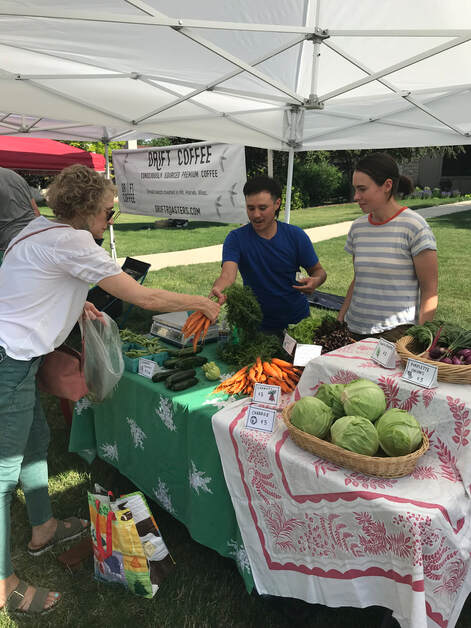
“We love connecting people with good food,” Sam and Katie say about coming to the market. “We love swapping recipes with market shoppers and introducing folks to new vegetables. We love being outside, putting our hands in the dirt, learning from others and sharing what we’ve learned.”
Farming, Sam adds, connects them to something vital within themself and the world around them, calling it, “a way to do something that lights me up and supports my community.”
Farming, Sam adds, connects them to something vital within themself and the world around them, calling it, “a way to do something that lights me up and supports my community.”
Community Supported Agriculture
To farm, to be dependent on the land, is to be vulnerable. Vulnerability can be met (and even embraced) in many different ways. If we were to do a word search through all of these posts about the Mount Horeb Farmers Market, it’s a good bet that one of the most oft-repeated words would be ‘community.’
In our own farming community just this season we’ve seen weather and pests destroy most of Bures’ strawberry yield, and with it the financial security of their largest yearly crop that draws people to their farm. Strawberry season might be a blip on the calendar if you’re looking at the entire year, but there's a Bulgarian saying - about people and industries that rely on short, intense periods of business - that translates roughly to ‘one day that feeds the year.'
What can this community do for our farmers when their 'one day' is disrupted?
Well, to continue with the example of Bures this season, we can remember that they grow many other crops - this week they've got green beans and German butterball potatoes coming to the market, and before we know it, sweet corn season will be here! - and double down on our commitment to buying local and rearranging our shopping habits to choose local over convenience.
We see the acronym CSA so often it’s easy to forget that it has a meaning beyond “A weekly box of vegetables that we feel guilty about not finishing.” In concrete terms a CSA share puts money in the hands of the farmers at the start of the season when they need it the most, and more abstractly it’s the soil in which a beautiful, reciprocal relationship can begin to grow.
(Squashington and Jumping Spider both offer CSAs - something to think about for next season!)
In a broader sense, everything we’re doing at the Mount Horeb Farmers Market is about Community Supported Agriculture; we are supporting our community’s agriculture, building a web of interconnectedness. A robust local food system is so important because community – collaboration, reciprocity, sharing – breeds resilience, a small farmer's antidote to vulnerability. The farmers at our little market all speak eloquently to this truth, that everything they do is in collaboration, not competition, with the land and with each other.
As Sam and Katie say about their work on Jumping Spider Farm, “We love dreaming up and building sustainable, local, caring food systems, [and] we really appreciate the local food community of growers, farmers and customers who have welcomed, supported and mentored us.”
In our own farming community just this season we’ve seen weather and pests destroy most of Bures’ strawberry yield, and with it the financial security of their largest yearly crop that draws people to their farm. Strawberry season might be a blip on the calendar if you’re looking at the entire year, but there's a Bulgarian saying - about people and industries that rely on short, intense periods of business - that translates roughly to ‘one day that feeds the year.'
What can this community do for our farmers when their 'one day' is disrupted?
Well, to continue with the example of Bures this season, we can remember that they grow many other crops - this week they've got green beans and German butterball potatoes coming to the market, and before we know it, sweet corn season will be here! - and double down on our commitment to buying local and rearranging our shopping habits to choose local over convenience.
We see the acronym CSA so often it’s easy to forget that it has a meaning beyond “A weekly box of vegetables that we feel guilty about not finishing.” In concrete terms a CSA share puts money in the hands of the farmers at the start of the season when they need it the most, and more abstractly it’s the soil in which a beautiful, reciprocal relationship can begin to grow.
(Squashington and Jumping Spider both offer CSAs - something to think about for next season!)
In a broader sense, everything we’re doing at the Mount Horeb Farmers Market is about Community Supported Agriculture; we are supporting our community’s agriculture, building a web of interconnectedness. A robust local food system is so important because community – collaboration, reciprocity, sharing – breeds resilience, a small farmer's antidote to vulnerability. The farmers at our little market all speak eloquently to this truth, that everything they do is in collaboration, not competition, with the land and with each other.
As Sam and Katie say about their work on Jumping Spider Farm, “We love dreaming up and building sustainable, local, caring food systems, [and] we really appreciate the local food community of growers, farmers and customers who have welcomed, supported and mentored us.”
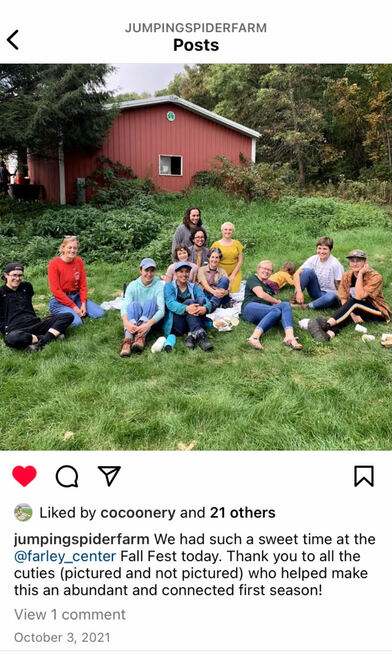
As new farmers, access to capital and land could have been insurmountable obstacles to Jumping Spider Farm growing roots. Fortunately, they found the Farley Center in Verona, which has a farming collaborative program to support immigrant and aspiring farmers, or farmers who want to start or continue farming but don't have the necessary capital or experience.
From the Farley Center’s website:
“The Linda and Gene Farley Center for Peace, Justice and Sustainability launched its farm incubator in 2010, expanding upon the community gardening projects supported for 15 years. Through the farm incubator, aspiring farmers are supported with land, tools, education, and marketing assistance. Training takes place while maintaining full respect for the cultural crops and practices of the growers involved. All production is Certified Organic through Midwest Organic Services Association.”
What an amazing program for the time we live in! Just as none of us live in a vacuum, farming shouldn't happen in a vacuum, but food and farming practices aren’t necessarily passed down from parent to child anymore, or even through the communities we’re born into, where most of us grow up very disconnected from the food that nourishes us. So this kind of intentional cultivation of community and the preservation and dissemination of knowledge and wisdom from all over the world is exciting and necessary and a vital step towards small farm and farmer resilience.
“I love farming on shared land,” Sam says, “and appreciate the community of farmers and staff at the Farley Center, who bring wisdom and experience to the practice.”
And we appreciate them bringing their unique experience to the Mount Horeb Farmers Market!
From the Farley Center’s website:
“The Linda and Gene Farley Center for Peace, Justice and Sustainability launched its farm incubator in 2010, expanding upon the community gardening projects supported for 15 years. Through the farm incubator, aspiring farmers are supported with land, tools, education, and marketing assistance. Training takes place while maintaining full respect for the cultural crops and practices of the growers involved. All production is Certified Organic through Midwest Organic Services Association.”
What an amazing program for the time we live in! Just as none of us live in a vacuum, farming shouldn't happen in a vacuum, but food and farming practices aren’t necessarily passed down from parent to child anymore, or even through the communities we’re born into, where most of us grow up very disconnected from the food that nourishes us. So this kind of intentional cultivation of community and the preservation and dissemination of knowledge and wisdom from all over the world is exciting and necessary and a vital step towards small farm and farmer resilience.
“I love farming on shared land,” Sam says, “and appreciate the community of farmers and staff at the Farley Center, who bring wisdom and experience to the practice.”
And we appreciate them bringing their unique experience to the Mount Horeb Farmers Market!
Follow Jumping Spider Farm on Instagram, Facebook
Curious about how they chose the name? “Jumping Spider Farm was named after the Salticidae family of spiders. Jumping spiders are particularly friendly and curious, and quite bold – they will even appear to cock their head at you, and are known to leap great lengths to catch prey. They also hunt critters that would not be beneficial to growing vegetables, thus representing balance in an ecosystem. One day while reading in the grass, Sam saw a jumping spider tilt its head as if to look up in wonder. Since then, these spiders have appeared in times of transition to remind Sam that the universe has his back.”
We hope to see you at the Market this Thursday afternoon, and if you come by we hope you make time to stop and introduce yourself to Sam and Katie!
We hope to see you at the Market this Thursday afternoon, and if you come by we hope you make time to stop and introduce yourself to Sam and Katie!
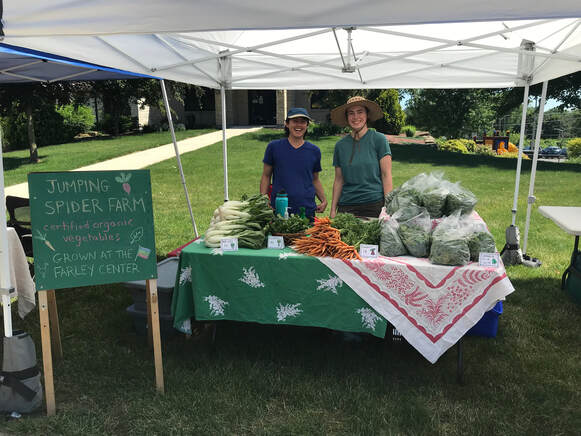
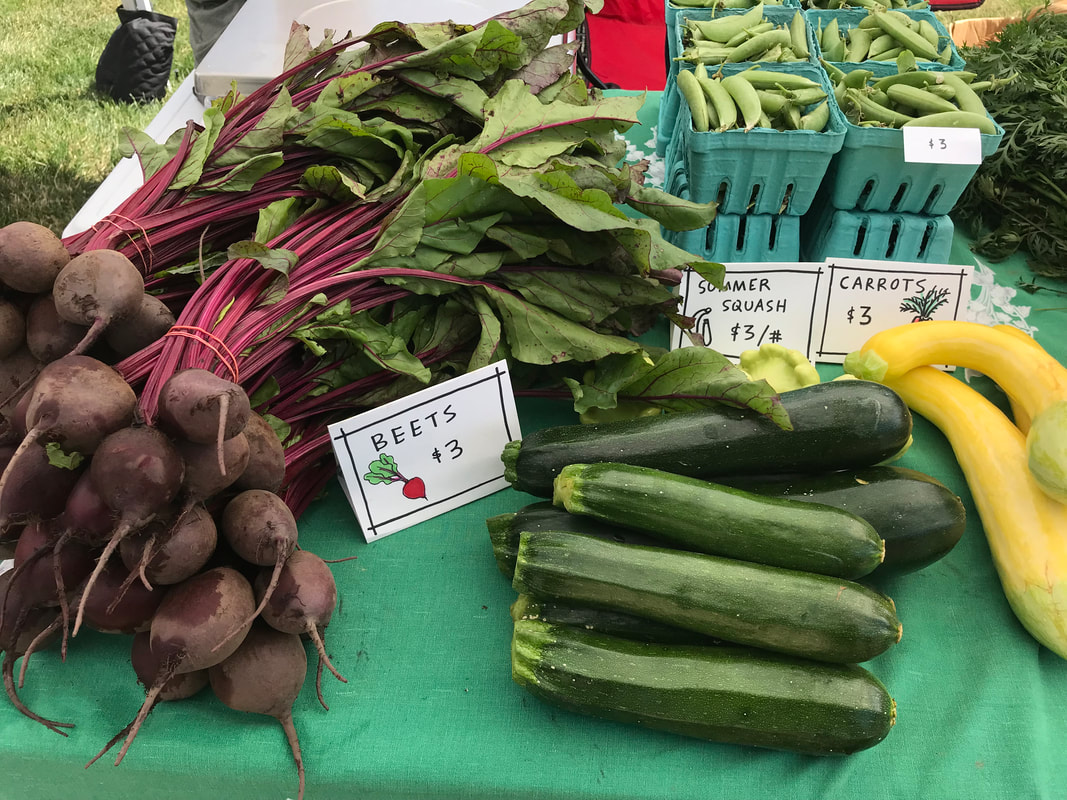
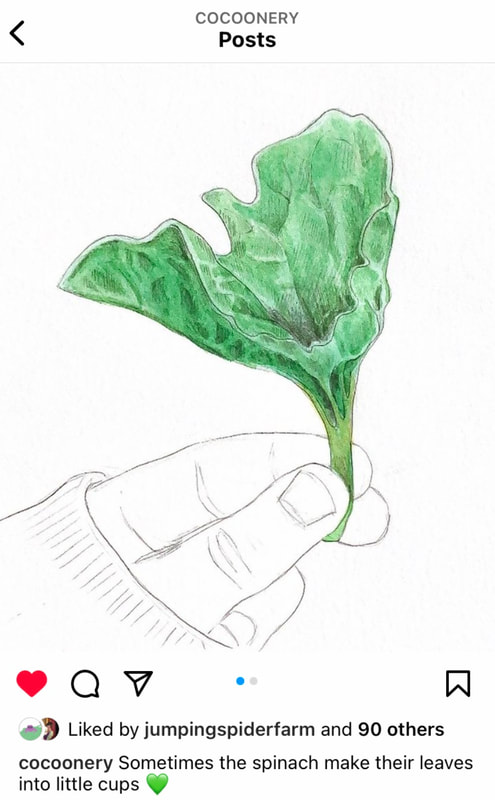
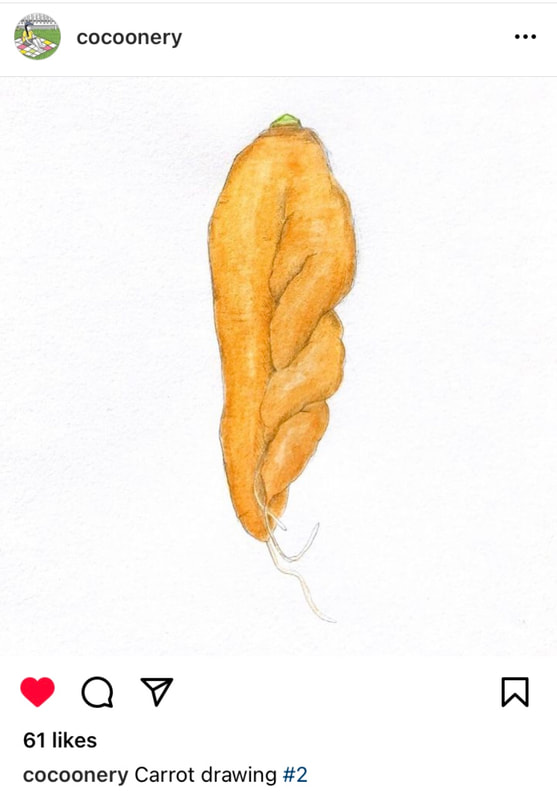
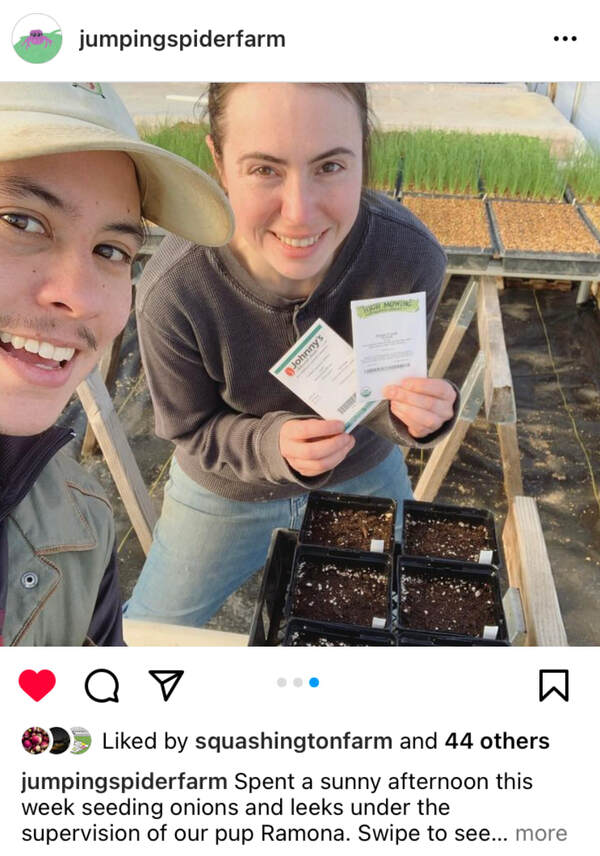
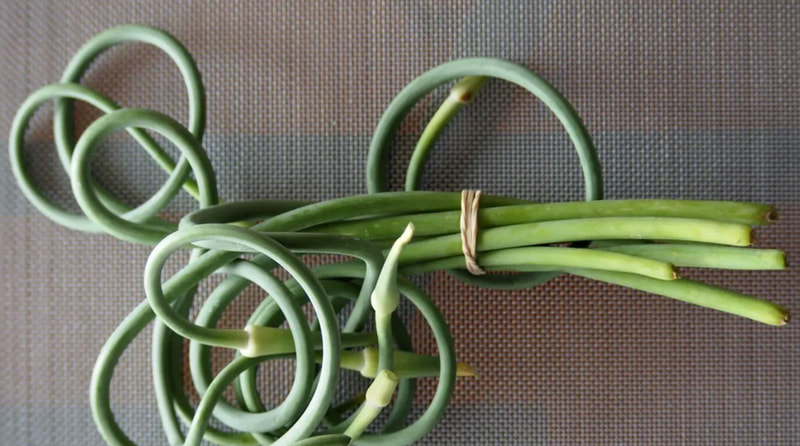
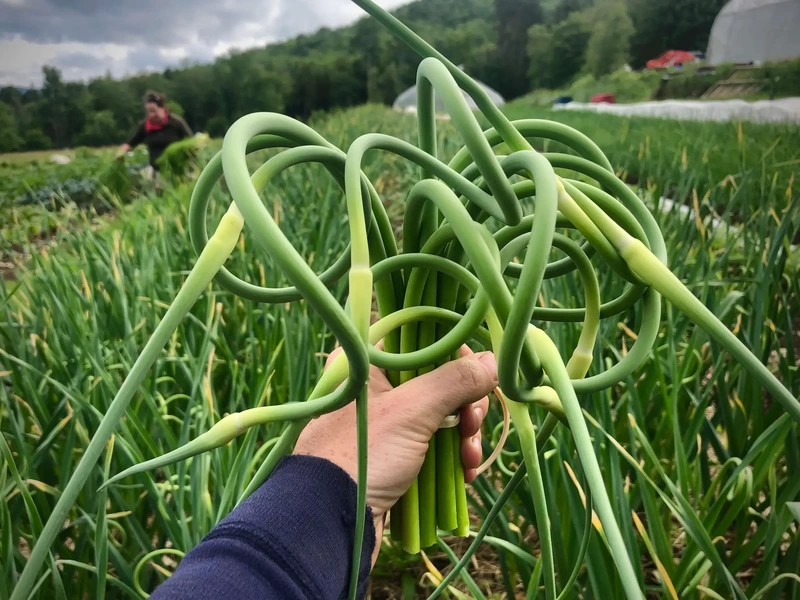
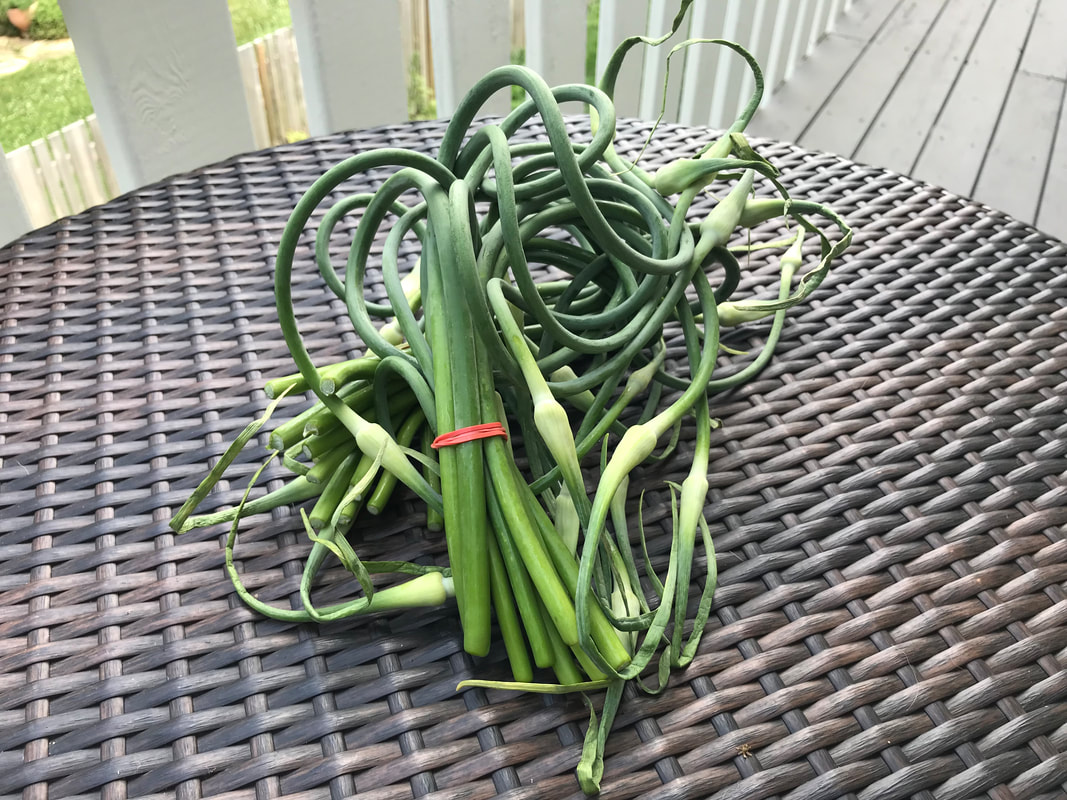
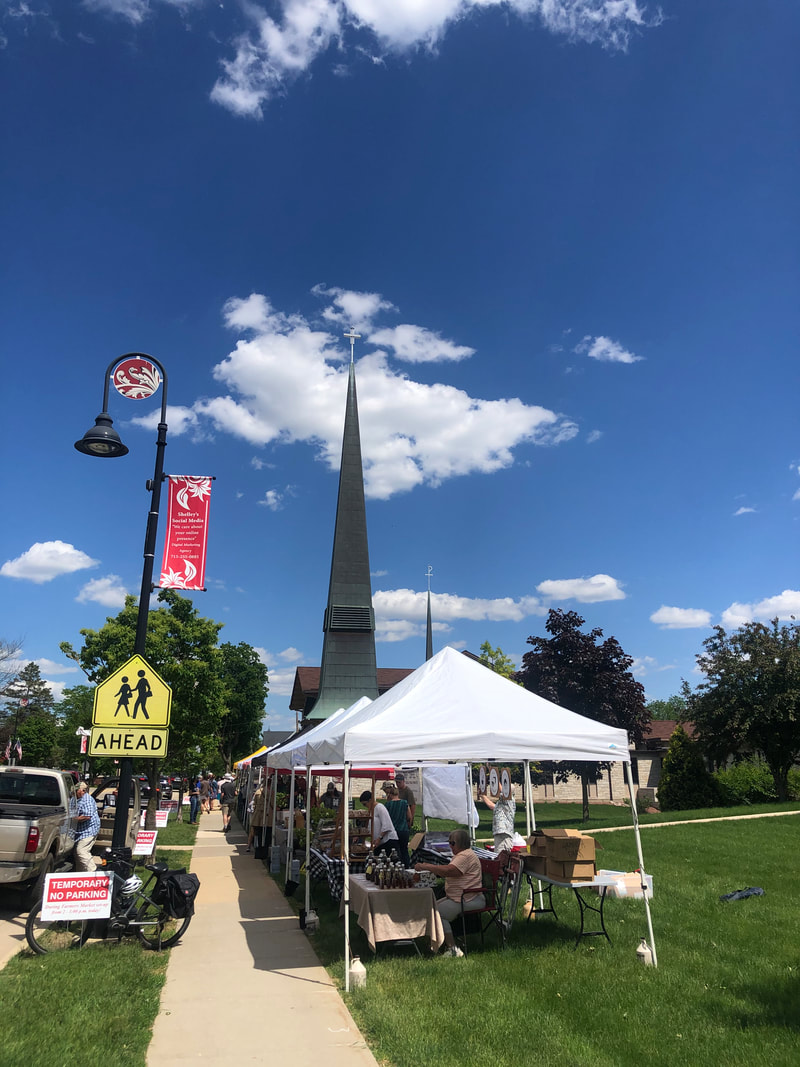
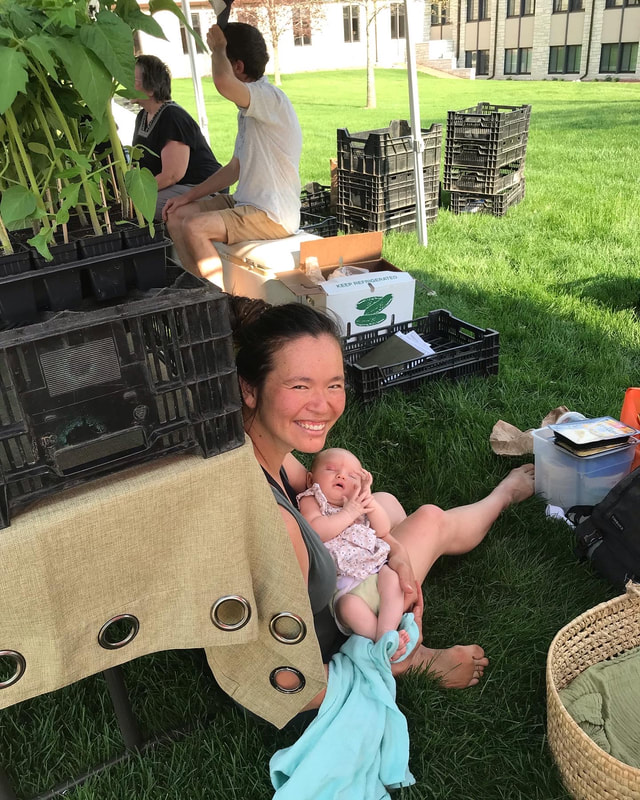
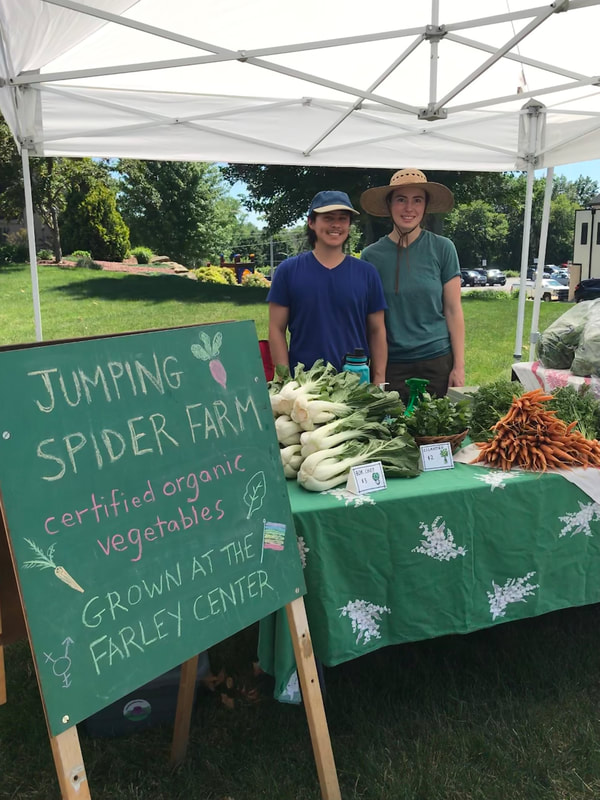
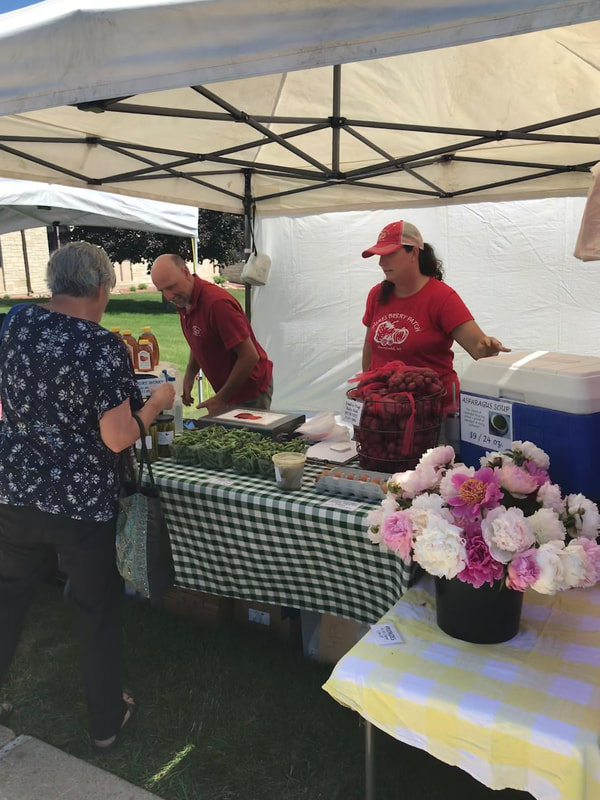
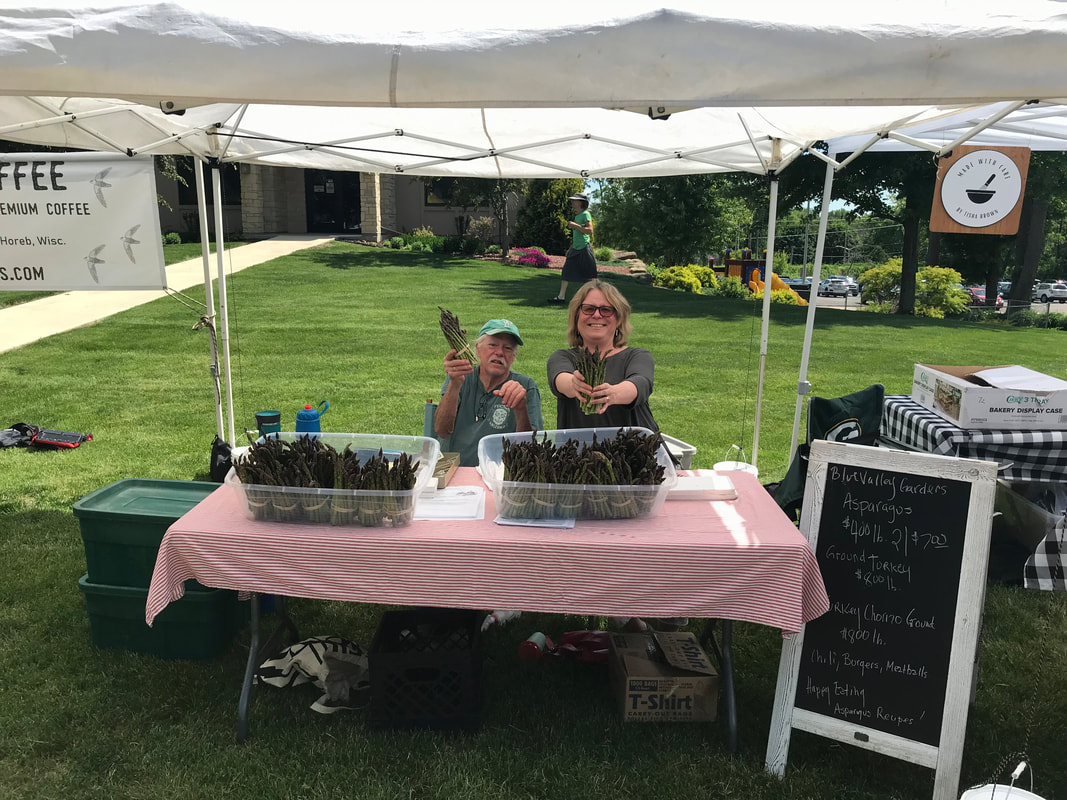
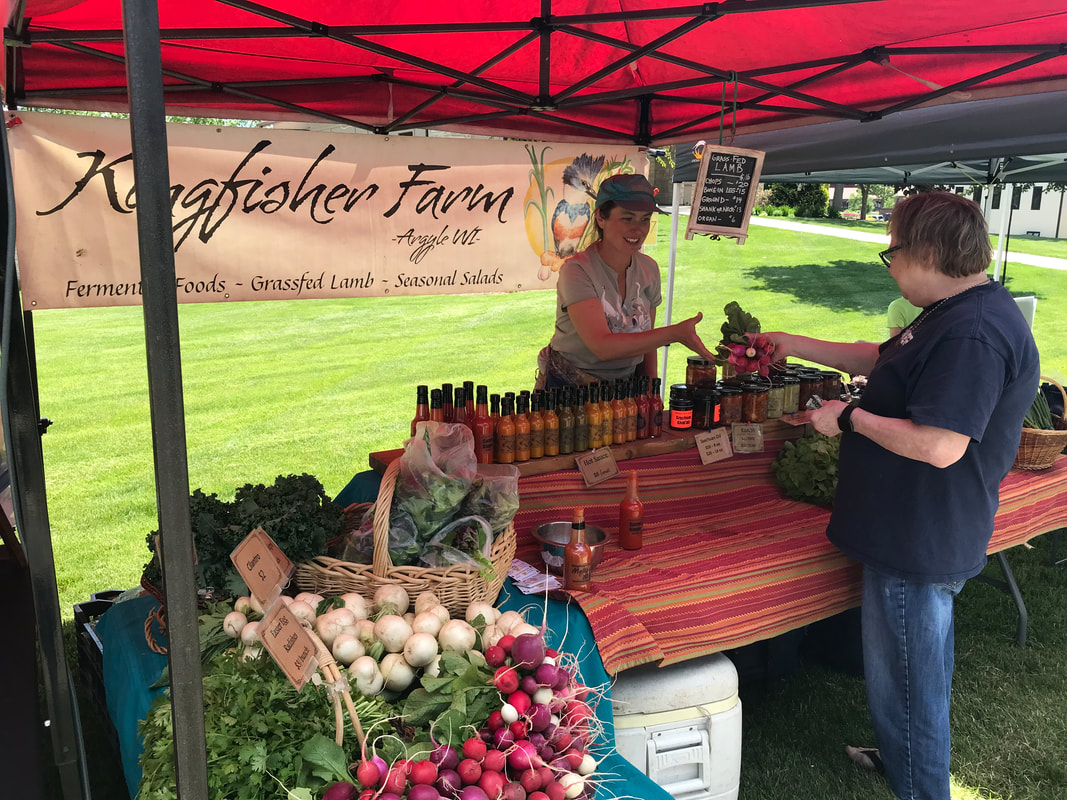
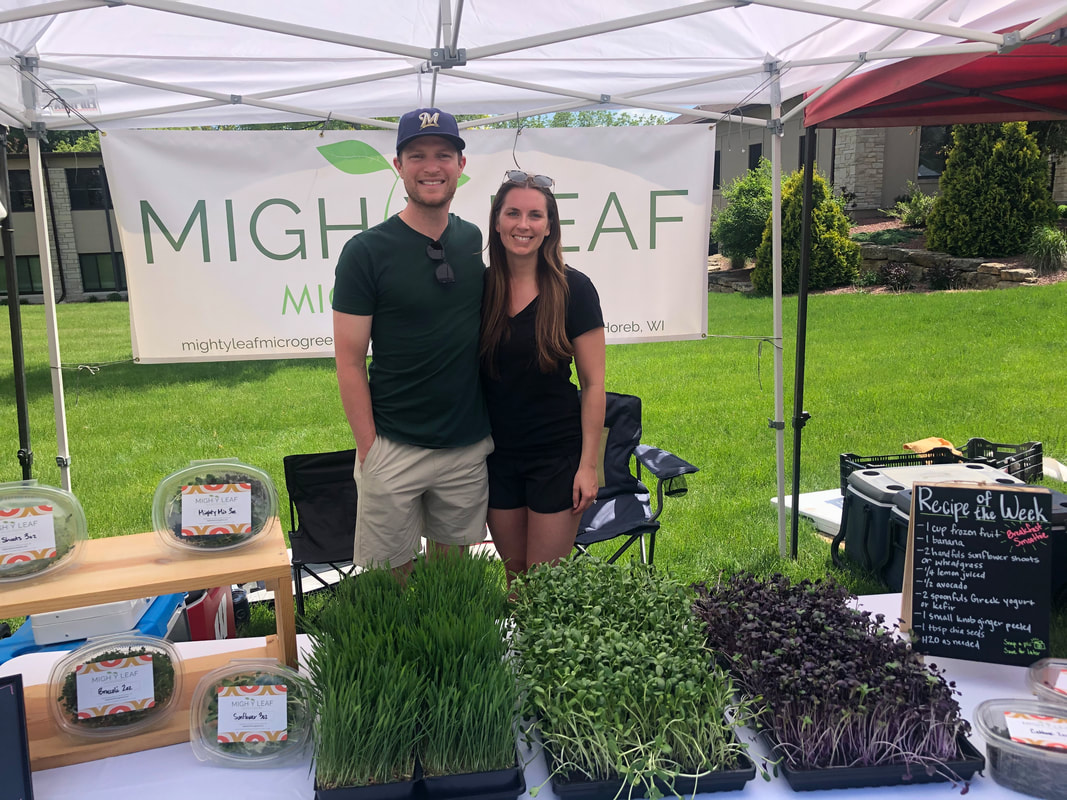
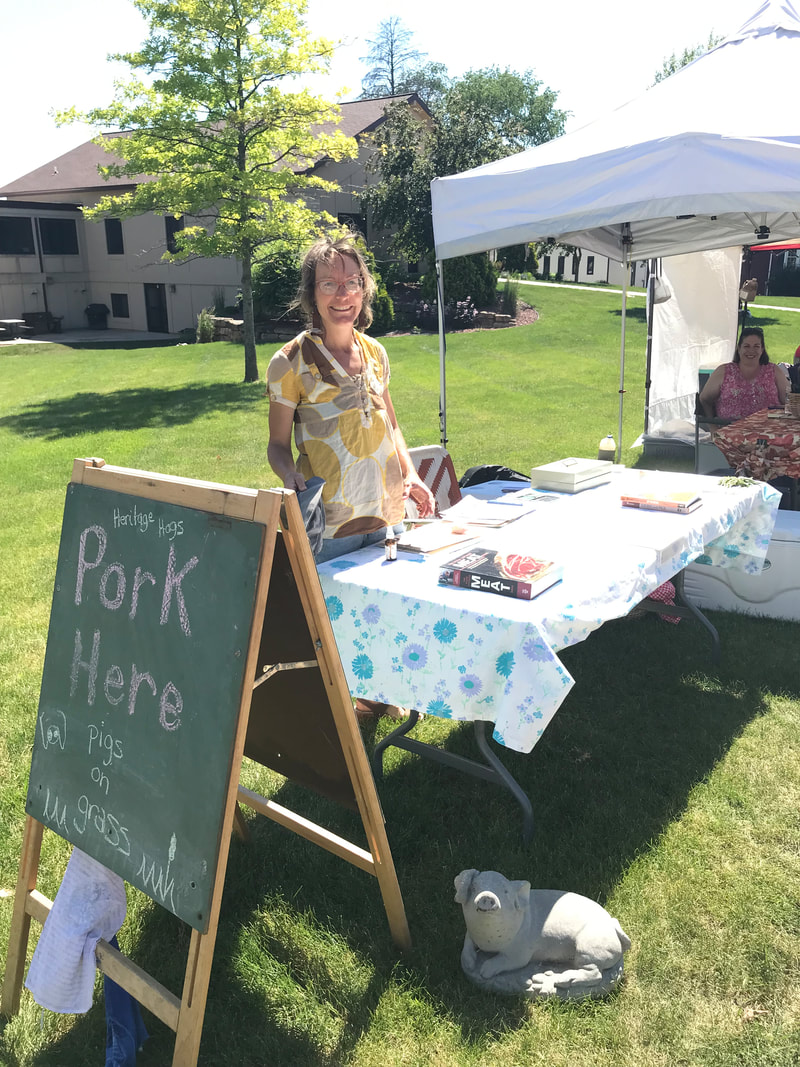
 RSS Feed
RSS Feed
